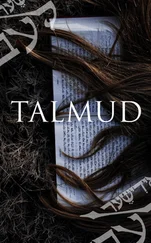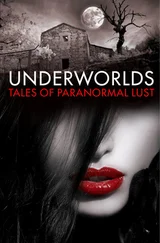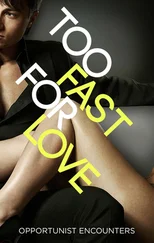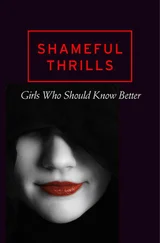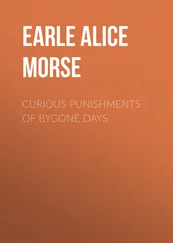Various - Bygone Berkshire
Здесь есть возможность читать онлайн «Various - Bygone Berkshire» — ознакомительный отрывок электронной книги совершенно бесплатно, а после прочтения отрывка купить полную версию. В некоторых случаях можно слушать аудио, скачать через торрент в формате fb2 и присутствует краткое содержание. Жанр: foreign_prose, на английском языке. Описание произведения, (предисловие) а так же отзывы посетителей доступны на портале библиотеки ЛибКат.
- Название:Bygone Berkshire
- Автор:
- Жанр:
- Год:неизвестен
- ISBN:нет данных
- Рейтинг книги:3 / 5. Голосов: 1
-
Избранное:Добавить в избранное
- Отзывы:
-
Ваша оценка:
- 60
- 1
- 2
- 3
- 4
- 5
Bygone Berkshire: краткое содержание, описание и аннотация
Предлагаем к чтению аннотацию, описание, краткое содержание или предисловие (зависит от того, что написал сам автор книги «Bygone Berkshire»). Если вы не нашли необходимую информацию о книге — напишите в комментариях, мы постараемся отыскать её.
Bygone Berkshire — читать онлайн ознакомительный отрывок
Ниже представлен текст книги, разбитый по страницам. Система сохранения места последней прочитанной страницы, позволяет с удобством читать онлайн бесплатно книгу «Bygone Berkshire», без необходимости каждый раз заново искать на чём Вы остановились. Поставьте закладку, и сможете в любой момент перейти на страницу, на которой закончили чтение.
Интервал:
Закладка:
William Rufus assembled a council at Windsor, and there imprisoned the rebellious Earl of Mowbray for the remaining thirty years of his life.
Henry I. built a chapel, probably on the site now occupied by the Albert Memorial Chapel, formerly known as Wolsey's Tomb-House. Windsor was a favourite summer residence of Henry, and it was here that, in 1121, he married Adelicia of Louvain, the "Fair Maid of Brabant." In 1127, Henry received at Windsor the homage of the nobles of the land, who at the same time swore allegiance to his daughter, the Empress Maud, or Matilda. As was usual on such solemn occasions, the coronation ceremony was repeated.
Windsor does not figure at all in Stephen's disturbed reign, but Henry II. frequently resided there, and in his tenth year expended the sum of 30s. on repairing the kitchen. Fabyan, a chronicler of the time, tells a pathetic story bearing on Henry's domestic troubles. "It is recorded that in a chambere at Wyndsore he caused to be painted an eagle, with four birds, whereof three of them all rased (scratched) the body of the old eagle, and the fourth was scratching at the old eagle's eyes. When the question was asked of him (Henry) what thing that picture should signify? it was answered by him, 'This old eagle,' said he, 'is myself; and these four eagles betoken my four sons, the which cease not to pursue my death, and especially my youngest son, John, which now I love most, shall most especially await and imagine my death.'"
Windsor is closely connected with the granting of Magna Charta by John. Between Old Windsor and Staines is the flat meadow of Runimede, from which the Castle towers are visible. During the conferences which preceded and followed the ratification of this great charter, John went backwards and forwards to Windsor each day. He was at Windsor when he heard of the landing of the Dauphin Louis.
Henry III. greatly improved the Castle. The old hall in the Upper Ward was abandoned for a new and larger one in the Lower Ward, and, in 1272, he roofed the Keep. Part of the cloister still stands as it was then built, and not long ago a portrait of the king, part of the painted decoration, was discovered. On the town side three great towers were built, and on the north was erected a tower on the same site as now stands the Winchester Tower. All the buildings were handsomely decorated with paintings and windows filled with glass. In one of the new towers on the western side was possibly the dungeon connected with a scene in Henry's career, which proved him, for all his piety, a worthy son of his father. The Londoners, headed by their Mayor, Fitz-Thomas, had long resisted Henry's exactions, and when, in 1265, the King was in their power, and Earl Simon de Monfort ruled the land, Fitz-Thomas addressed to his King words in St. Paul's which sank deep into Henry's soul. When the Battle of Evesham delivered his enemies into his hands, Henry summoned the Mayor and chief citizens to Windsor, giving them a safe conduct. They were then thrown into prison, from which it does not appear that Fitz-Thomas ever emerged, though the others, to the number of forty, were eventually released.
The two eldest sons of Edward I. were born at Windsor, and, though the King himself rarely visited the Castle, Queen Eleanor seems often to have resided here.
In 1312 was born at Windsor one who was to do much for the castle, Edward III. During all his long reign Windsor was the scene of many displays of pomp and vanity, of tournaments, feasts, processions, besides councils, chapters, and great assemblies. The Upper Ward was entirely rebuilt, William of Wykeham – from whom the Winchester Tower derived its name – being the architect. It is said that the words "Hoc fecit Wykeham" were placed upon it, and that the wily prelate translated them to Edward as meaning, not "Wykeham made this," but "This made Wykeham."
Another story is told which points to the want of refined manners and delicate feeling of the Middle Ages. King Edward was conducting his royal prisoners, King John of France and King David of Scotland, round the Lower Ward, when one of them pointed out that the Upper Ward lay on higher ground and commanded a finer view. The King "approved their sayings, adding pleasantly that it should so be, and that he would bring his castle thither, that is to say, enlarge it so far with two other wards, the charges whereof should be borne with their two ransoms," as afterwards happened. The story of King Arthur and the Round Table fired Edward with the idea of founding the institution of the Garter, and carpenters and masons were soon busy erecting the Round Tower for the Round Table. The table, made of fifty-two oaks, seems to have been in the shape of a horse shoe rather than a perfect circle, so that the attendants could stand in the middle to serve the guests. In this tower assembled the flower of English knighthood – Warwick, celebrated in the French wars, who, when he died of the plague in 1369, left "not behind him his equal;" the young Earl of Salisbury, whose beautiful mother is said to have given rise to the motto of the Order, "Honi soit qui mal y pense;" and many others besides, whose names are well known for their prowess and valour.
It was at Windsor that good Queen Philippa passed away, universally lamented. Froissart touchingly describes her death: – "There fell in England a heavy case and common, howbeit it was right piteous for the King, his children, and all the realm. For the good Queen of England, that so many good deeds had done in her time, and so many knights succoured, and ladies and damsels comforted, and had so largely departed of her goods to her people, and naturally loved always the nation of Hainault, the country where she was born; she fell sick in the Castle of Windsor, the which sickness continued on her so long that there was no remedy but death. And the good lady, when she knew and perceived that there was with her no remedy but death, she desired to speak with the King, her husband. And when he was before her she put out of her bed her right hand, and took the King by his right hand, who was right sorrowful at heart. Then she said, 'Sir, we have in peace, joy, and great prosperity used all our time together. Sir, now I pray you, at our departing, that ye will grant me three desires.'" Her requests related to her debts, her promises to churches, and to her husband's "sepulture when so ever it shall please God to call you out of this transitory life," beside her in Westminster. "Then the good lady and Queen made on her the sign of the cross, and recommended the King, her husband, to God, and her youngest son, Thomas, who was beside her. And anon after, she yielded up the spirit, the which I believe surely the holy angels received with great joy up to heaven, for in all her life she did neither in thought or deed thing whereby to lese her soul, as far as any creature could know."
Many important scenes in Richard II.'s life are laid in Windsor Castle. Two deputations waited upon him here with a list of their grievances. In 1390 he appointed Geoffrey Chaucer, the poet, to superintend repairs in the chapel. The great dispute between Henry Bolingbroke, the last Knight of the Garter admitted by Edward III., and the Duke of Norfolk, took place at Windsor Castle, where, in the courtyard, King Richard sat on a platform, and gave judgment between the two, sentencing Bolingbroke to ten years' exile, and banishing Norfolk for life. It was at Windsor that Richard bade a last farewell to his child-queen, Isabella of France, then eleven years of age. The scene is touchingly described by a contemporary chronicler, who states that the King and Queen walked hand in hand from the Castle to the Lower Court, and entered the Deanery, passing thence into the chapel. After chanting a collect, Richard took his Queen into his arms, and kissing her twelve or thirteen times, said sorrowfully: – "Adieu, ma chère , until we meet again; I commend me to you." Then the Queen began to weep, saying to the King: – "Alas! my lord, will you leave me here?" The royal pair then partook of comfits and wine in the Deanery, the King kissing his Queen many times and lifting her in his arms. "And by our lady, I never saw so great a lord," continues the chronicler, "make so much of nor show such great affection to a lady as did King Richard to his Queen. Great pity was it that they separated, for never saw they each other more."
Читать дальшеИнтервал:
Закладка:
Похожие книги на «Bygone Berkshire»
Представляем Вашему вниманию похожие книги на «Bygone Berkshire» списком для выбора. Мы отобрали схожую по названию и смыслу литературу в надежде предоставить читателям больше вариантов отыскать новые, интересные, ещё непрочитанные произведения.
Обсуждение, отзывы о книге «Bygone Berkshire» и просто собственные мнения читателей. Оставьте ваши комментарии, напишите, что Вы думаете о произведении, его смысле или главных героях. Укажите что конкретно понравилось, а что нет, и почему Вы так считаете.

![Various Various - Selected List of Nimmo, Hay, & Mitchell's Publications [1890]](/books/571841/various-various-selected-list-of-nimmo-hay-mit-thumb.webp)
